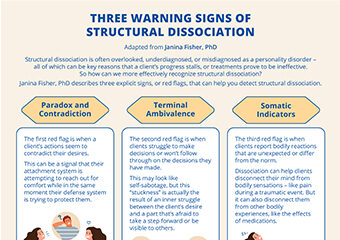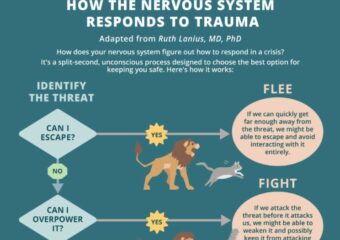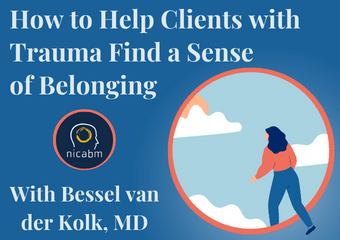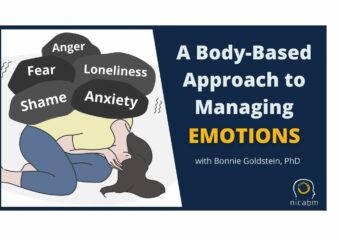Working with structural dissociation can be critical in the treatment of severe or prolonged trauma . . . . . . but it’s often difficult to detect. According to Janina Fisher, PhD, structural dissociation is commonly underdiagnosed, or it’s misdiagnosed as a personality disorder. And when left undetected, it could lead to ineffective treatments that […]
[Infographic] – How the Nervous System Responds to Trauma
It can often be difficult for trauma survivors to understand how or why they reacted a certain way during a traumatic experience. Instead of seeing their trauma response as the result of a split-second, unconscious decision made by their nervous system, your client may blame themself for not reacting differently. This can be especially true […]
How to Help Clients with Trauma Find a Sense of Belonging, with Bessel van der Kolk, MD
When a client experiences trauma in childhood, and they aren’t able to develop crucial attachment relationships . . . . . . they may struggle to feel any true sense of belonging right up through adulthood. Instead, they can carry painful messages that they’re unwanted, unneeded, and never truly accepted. So in the video below, […]
A Body-Based Approach to Managing Difficult Emotions
When clients have a low threshold for tolerating difficult emotions, their lives can become extremely limited. Instead of working through the challenges that can lead to new opportunities, they may choose to stay with the relative “safety” of what they know – even if it’s dysfunctional. So in the video below, Bonnie Goldstein, PhD, walks […]
Questions That Can Help Your Clients Talk About Shame
Talking about shame can be a deeply uncomfortable experience . . . . . . and clients may go to great lengths to avoid discussing or admitting to feelings of shame. But as we know, shame that stays hidden will continue to grow more powerful, often bringing on even more shame. So in the video […]




